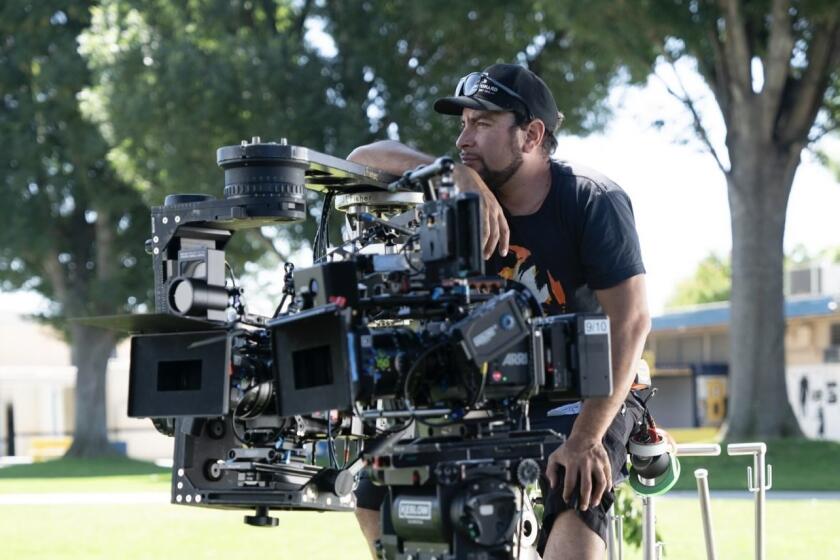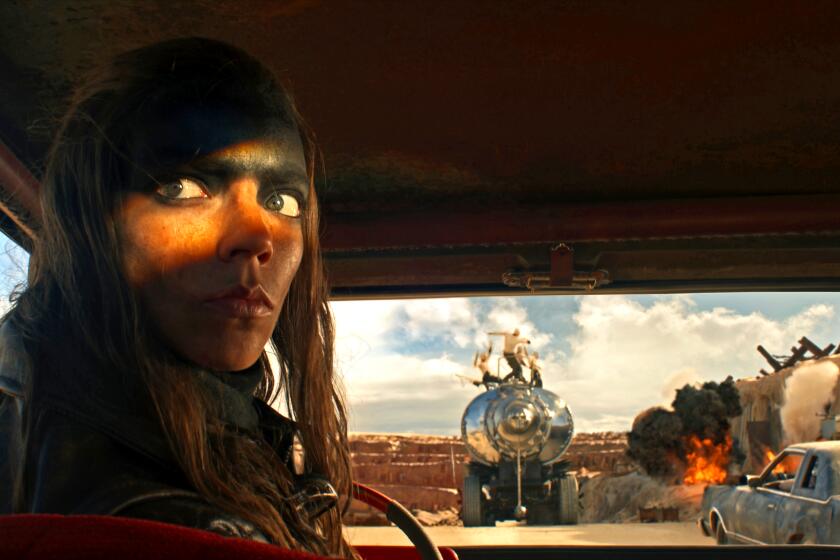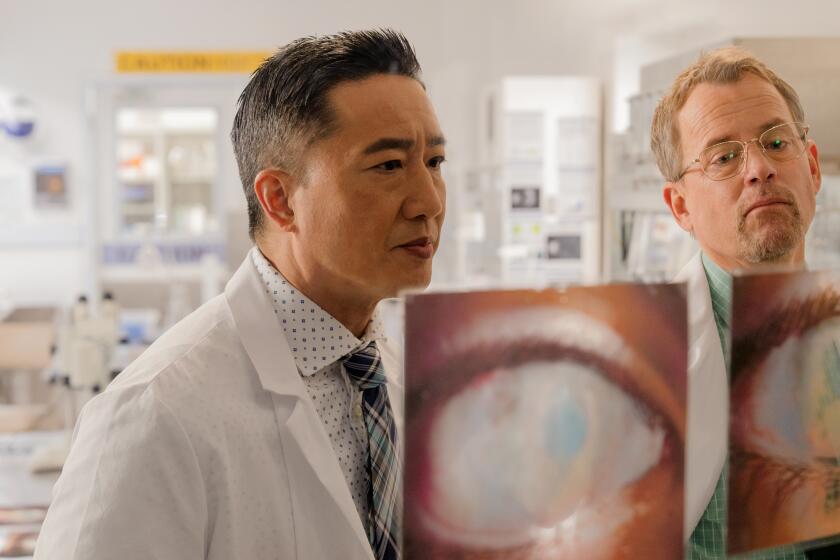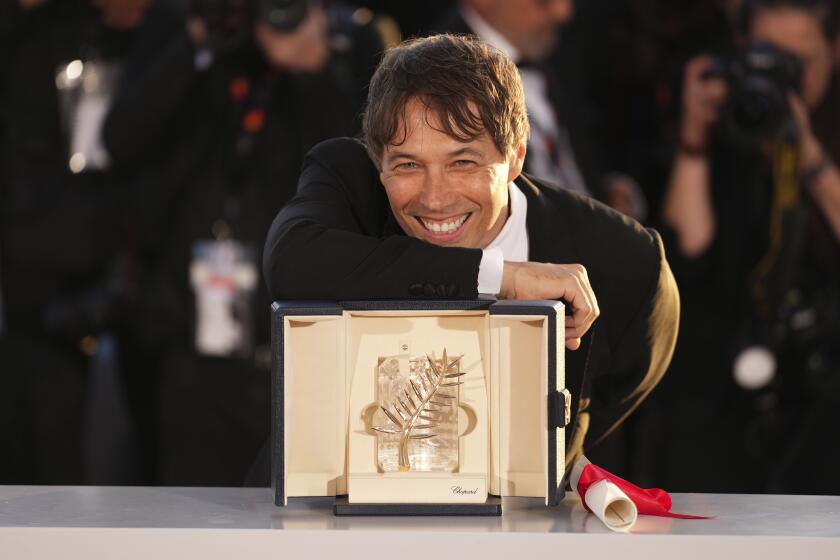COMMENTARY ON VIETNAMESE AMERICANS : Refugees Face Identity Crisis Not Unlike That of Rip van Winkle : Mourning an irretrievable past, immigrants often don’t fully value where or who they are in the present.
For many Vietnamese Americans, their experiences as refugees remind them vividly of a Vietnamese tale--”The Story of Tu Thuc”--that is quite similar to the story of Rip van Winkle in its universal theme of exile and return.
In the story, Tu Thuc, like his American counterpart, is “one of those happy mortals who take the world easy” and likewise would probably “rather starve on a penny than work for a pound.” Unlike Rip, however, who tried to escape from the clamor of his termagant wife, Tu Thuc, a bachelor and a mandarin in addition to being a poet, chafed under the feudal bureaucracy and ran away with a beauty whom he had saved from a hard punishment for the crime of stealing a flower from a garden.
Both men went into the mountains and came upon supernatural settings. For Rip, it was the legendary Hendrick Hudson and his crew at their game of ninepins somewhere beyond the Catskill Mountains west of the Hudson River. For Tu Thuc, what he found was simply the happiest place that has never existed on Earth. He even married the girl, Giang Huong, who turned out to be the daughter of the goddess who was the benign ruler of the paradise.
Both Rip, who failed to find the way back to the scene that had enchanted him the day before, and Tu Thuc, who gave in to his “Earth-sickness” despite the advice and consolation of his wife, eventually returned “home.” But since a day in paradise is a hundred years on earth, both of them came back to a strange country inhabited by unfamiliar people.
Confused as he was, Rip resigned himself to his old town, for at least he was happy at his deliverance from Dame Van Winkle. His Vietnamese counterpart, a stranger in paradise who now found himself a stranger on Earth, again took off in search of the paradise he had left. There are two versions to the ending of the Vietnamese story: According to one version, Tu Thuc found the way back without difficulty, and according to another, he found the gates of paradise closed to him. But in either case, we learn that Tu Thuc went back into the mountains and was never seen again.
Twenty years is a long time.
But I still remember vividly the day. It was 8 p.m. on April 27. The situation had become chaotic. People ran around in the streets like animals in a cage. That morning, since it was Sunday, I had gone to church, half expecting to meet many of my friends there. But they were all gone, and in the almost deserted aisle I sat and prayed alone. I felt panicky. Until that minute I didn’t believe that we were losing the war and that we would have to leave. I couldn’t accept that idea. That evening, I was anxious, because I didn’t know what would happen, and also relieved, because at least I knew I was going and would be able to hold onto my freedom.
The U.S. Embassy had instructed us to go and spend the night at the airport. Our plane was scheduled to leave the next morning. I grabbed a few photographs. I packed some traditional Vietnamese dresses. And also a small iron and some French perfumes. Let’s hold onto them, I thought, because as a poor refugee I wouldn’t have the means to afford any such things. Funny how the mind works in such circumstances. I was with my mother and sister. Right after our plane took off, maybe two minutes after, the airport was bombed.
Twenty years is a long time.
It was all so sudden. I didn’t know that my life would be completely changed. I didn’t know that I would spend the next 20 years helping people. In my former life, I was a businesswoman. I was also aware that I was interested in human behavior. But it was only during my escape from Vietnam and in the camps on the way to the United States that I became involved. It was these refugees’ experiences which gave me the idea that I could be helpful in the resettlement process of my countrymen.
The first five days in Camp Pendleton, I felt like a dead person. I remember I cried a lot. The fifth day, I heard a call for volunteers over the microphone. I thought it was better to keep myself busy, so I volunteered. I became an assistant at the command post, welcoming volunteers, distributing clothes, working in the mess hall. It gave me a purpose. I thought I could help outside the camp also. And I would have to have some more formal training in psychology and human behavior.
Besides my full-time job as a mental health professional, I have worked as a volunteer for the Vietnamese Community of Orange County Inc., a private, nonprofit social and cultural services agency that I helped found in 1978. We provide, among other things, acculturation services to new refugees and immigrants. We help the refugees to learn a new way of life, a new way of thinking and doing things in order to survive in a new environment.
But at the same time we also encourage them to keep, as much as possible, the traditions of the old country. Like plants that are transplanted to new soil, however fertile, we have to keep our roots in order to grow and to thrive. In order to take up the new, we may have to get rid of certain old things, but we don’t get rid of our own selves. To move fast into the mainstream, we have to maintain our cultural identity. And in maintaining our cultural identity, we will be contributing to the rich tapestry of cultures that is America.
Twenty years. We have gone a long way.
From a handful of refugees, myself included, we have become the second-largest ethnic community in Orange County--indeed, with some 155,000 people, the largest concentration of Vietnamese outside Vietnam. The United States, while certainly one of the best places on Earth, is far from the paradise of fairy tales. Like other Americans, we have gone through recessions, torrential floods, raging fires, terrible earthquakes. We have trudged through freezing snow, picked strawberries under searing sun, toiled away in sweatshops. We were shown compassion; we were objects of scorn. We were admired; we were despised.
But through it all, we have survived, and many of us have thrived. And we have contributed greatly to this country. So I think that April 30, which remains a day of grief for many Vietnamese who are still mourning over an irretrievable past, also deserves to be celebrated this year by Vietnamese Americans for their past achievements and, as the 20th anniversary of their coming to America, as an opportunity to look forward, with hope and confidence, to the future-- our future right here in America.
Twenty years after.
Our agency, the VNCOC, has grown with the community. We started out from a dilapidated room in a nondescript area before moving on to a larger office space. Then we built our own senior center, also used as our office, lately called “corporate headquarters” since we have had to rent branch offices to accommodate our many programs serving different groups with special needs in the community.
Sure, there are still problems, despite the achievements. And many of the problems we encountered, in older refugees as in young people born or raised in the United States, even many of the reported happenings in the community, could be traced to a lack of self-esteem and a feeling of insecurity. Some people still don’t know where they are or who they are. We do what we can; time will take care of the rest.
For the past few years, tens of thousands of Vietnamese have gone back to “the old country” for short annual visits as “tourists” or for longer durations as businessmen. Many younger people, born or raised in the United States, are also making what they call “voyages of discoveries” to Vietnam. They are all searching for something. Here in America, amid all the talks about returning to the Victorian Age, or the Age of Roosevelt, many Vietnamese Americans are also looking back to the past, both in time and space, in search of something that I believe they can only find within themselves.
In the end, as I see it through my volunteer work in the community--which is here to stay--it is mainly a question of identity, faced not only by the Vietnamese refugees but by millions of other people in the world at this age of uncertainty that is the post-Cold War era. We are all, more or less, Tu Thucs. Or Rip van Winkles.
More to Read
Only good movies
Get the Indie Focus newsletter, Mark Olsen's weekly guide to the world of cinema.
You may occasionally receive promotional content from the Los Angeles Times.






